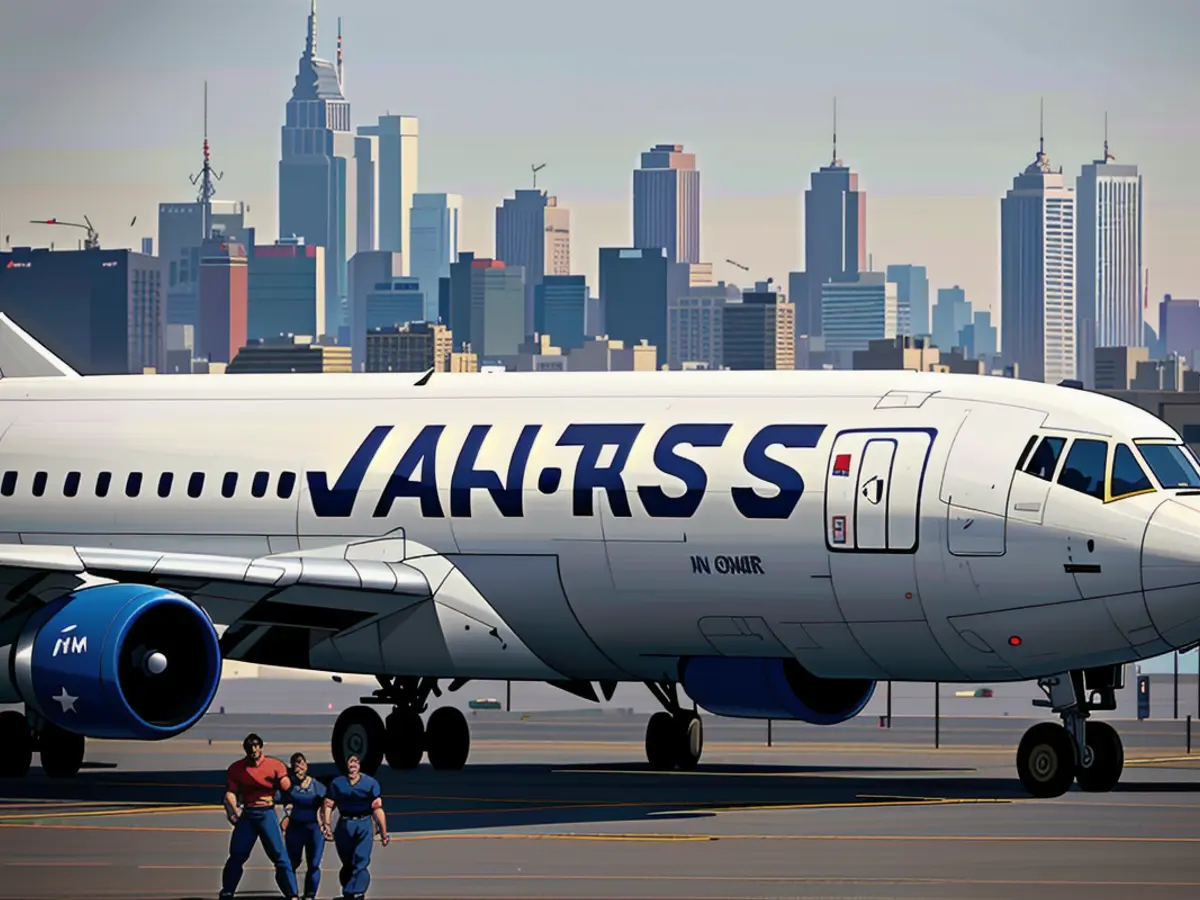United Airlines Leads Industry in 2025 Due to Four Prevailing Trends
At the stock market, 2024 could be considered an exceptional year for airlines, as six out of the top seven carriers outshone the S&P 500 Index. United's shares, leading the pack, climbed an impressive 135% while recognition grew that United was challenging Delta for the industry's lead position.
In a year-end report, JP Morgan analyst Jamie Baker noted, "United is better managed today than at any prior point post-merger (with Continental) in our view." Baker further stated, "United now firmly believes that there is room for two premium airlines in the U.S."
JP Morgan included United in its "2025 Year Ahead Best Ideas" and named it one of its top dozen consumer stock picks. For the full year, aside from United's breathtaking 135% gain, Alaska's shares soared 66%; Delta's rose 50%; JetBlue's gained 42%; Frontier's climbed 30%; American's shares rose 27%; and Southwest's stocks increased 16%. The S&P 500 Index saw a modest gain of 23%.
The airline industry's 2024 success and future prospects can be attributed to four primary factors.
- Supply Chain Challenges
The most significant trend continues to be supply chain challenges, with delays from Airbus, Boeing, engine manufacturers, and other suppliers. Despite the setbacks, these delays have kept the airline industry from overexpansion that might have resulted in unprofitable routes and higher employee costs due to increased capacity.
In Baker's report, he wrote, "We can’t remember a time when industry dynamics have handcuffed management teams from impeding the bull market in airline equities."
- Unrelenting Demand
Secondly, demand for air travel has remained robust. Every carrier reported a notable demand strength in their most recent earnings reports. This strong demand is driving new routes and increased frequencies, particularly for European destinations, for the upcoming summer.
United's destinations announcement in October was noteworthy. The carrier's summer 2025 itinerary includes eight new cities: Ulaanbaatar, Mongolia; Kaohsiung, Taiwan; Nuuk, Greenland; Palermo, Italy; Bilbao, Spain; Madeira Island, Portugal; Faro, Portugal; and Dakar, Senegal.
On United's October earnings call, CEO Scott Kirby remarked, "Greenland has garnered significant attention, but the impact on our system will be small. However, it will have a considerable impact on United, our brand, and our customer profile and sign-up for Miles."
- Profitable Credit Card Deals
Thirdly, airlines are leveraging a lucrative revenue stream: credit card deals. Delta's credit card deal resulted in third-quarter American Express revenue of $1.8 billion, an increase of 6% from the previous year. Delta aims to earn $10 billion in annual remuneration from these deals.
American secured a significant advantage on December 5, when it announced that Citi would become its exclusive credit card issuer. The agreement ended negotiations that had gone on for several years, as Barclays also held an American credit card deal and needed to be bought out.
On December 3, American's shares closed at $14.47. By December 5, they had climbed to $17.38, a jump of 20%. Following the deal's announcement, Cowen analyst Tom Fitzgerald raised his earnings per share estimate and his price target to $17 from $10, maintaining a hold rating. Fitzgerald wrote, "We update our model with the latest guidance and the finalized 10-year credit card deal with Citi, commencing in 2026. Management anticipates remuneration growing at a 10% compound annual growth rate." Fitzgerald also estimated that American's likely credit card remuneration would reach $10 billion annually in 2030.
- Desire for Premium Services
The final trend is the newfound desire of passengers for premium services. Today, airlines often treat perks like legroom, drinks, seat selection, bag transportation, and food as premium services, despite charging extra fees. Some find these practices shocking, but sports teams routinely charge more for better seats without reproach.
Despite ending 2023 as laggards, airline stocks only began to climb in the summer. In August, when airline shares were struggling, market strategist Stephanie Link, chief investment strategist and portfolio manager at Hightower Advisors, stated that recession fears were unwarranted and that the impact of such fears on airline share prices was overblown. Link expressed confidence in United's potential as her favorite airline stock, calls which proved to be correct.
Link was featured in a Our Website article titled, "United Airlines Challenges Delta for Industry Lead as American Lags," published on August 6. She remarked, "We’re not in a recession," debunking the day's trading logic. "GDP is going to grow 2.5% this year." (The Conference Board now estimates 2.7%.)
Currently, Delta's shares had dropped by 6% throughout the year, while United's shares saw a decline of 7%. In contrast, American Airline's shares plummeted an impressive 31%. At the time, Delta's shares were valued at approximately $38, ending the year above the $60 mark. United's shares were also trading around $39, concluding the year near the $97 mark. American's shares, initially valued at around $9, managed to close the year close to the $18 mark.
She favored link-associated airline shares and singled out United as her top choice. "United was the standout performer during the previous quarter," she declared. "United nailed capacity pricing and managed costs effectively."
"United and Delta appear to be forward-thinking, tracking where the trend is heading," she stated, further commenting, "Delta had its moment. I usually gravitate towards more unconventional stocks. Delta's popularity is the long bet; United, however, holds a more nuanced view." The term "long" denotes stocks acquired with the intention to hold them for an extended period.
In his year-end report, JP Morgan analyst Jamie Baker praised American’s Stephanie Link for her accurate predictions about United's stock performance, crediting her as a key factor in United challenging Delta for the industry's lead position.
Furthermore, in a 2025 outlook, Baker included both United and American in his top picks, reflecting the positive impact of Link's insights on the airlines' future prospects.







